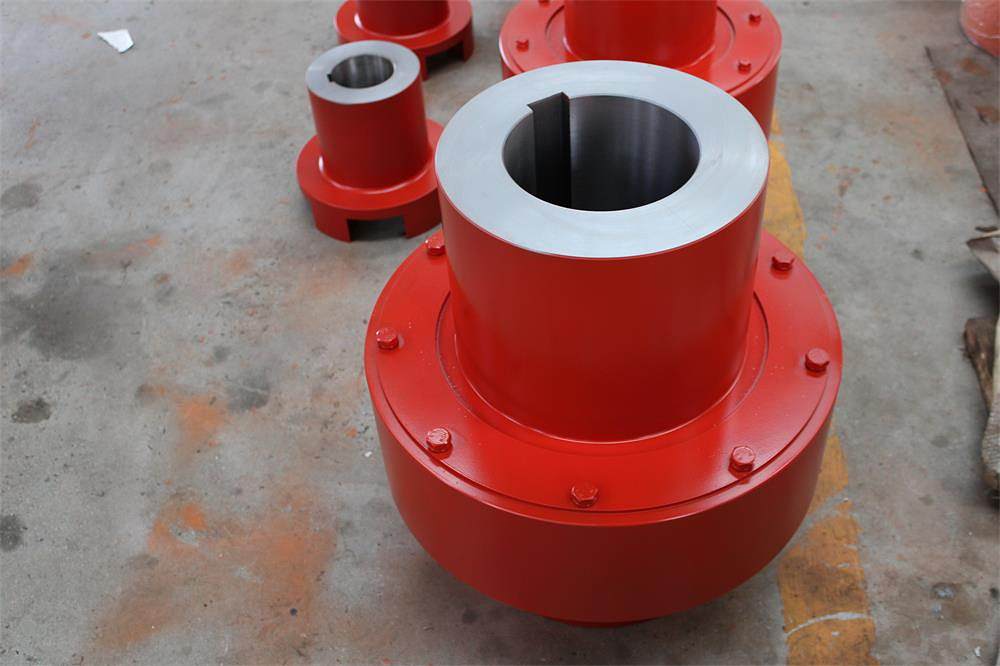Working principle of elastic pin coupling:
01. The elastic pin coupling has good compensation for axial, radial and angular axis offset performance, good vibration
damping performance, simple structure, stable and reliable operation, no noise, no need for lubrication, easy maintenance,
simple assembly and disassembly, It has good craftsmanship, low cost, can be derived into various structural forms, has
good versatility, has a wide range of applications, and is easy to promote.
02. The elastic pin coupling is composed of two half couplings with the same structure. The only difference between the
two is the assembly size of the shaft. The two half couplings are connected by a pin with elastic elements.The torsional
shock absorber of the device is a ring sleeve, which is connected and centered in the end disk. An intermediate ring is
installed between the elastic elements on the pin. The ring sleeve is floating and connected with the end disks that are
centered with each other.The pin connection covers the two half couplings along the end surface. The torque is transmitted
from one half coupling to the other half coupling through the elastic element mounted on the pin. The pin and half coupling
are non-rigidly connected, so that the pin is loaded smoothly and the lateral force can be greatly reduced.
03. The elastic pin coupling uses several pins made of non-metallic elastic materials, which are placed in the flange holes of
the two half couplings. The two halves of the coupling are connected through the pins. The coupling has a simple structure,
the easy-to-make pin is in a state of shearing and extrusion during operation. Its strength condition is to calculate the shear
strength on the cross section of the elastic pin and the extrusion strength of the pin and the pin hole wall. Stress occurs in
elastic pin couplings: due to differences in internal and external heating of the metal, uneven expansion produces internal
stress, which is called thermal stress. If the temperature is too high during annealing and the graphite cross section is formed,
it will be difficult to cut and process and it will cause overheating and deformation during quenching. Decarburization causes
soft spots to appear on the surface of the workpiece, reducing the hardness, wear resistance and fatigue strength of the surface.
The basic parameters and dimensions of elastic pin couplings are mainly specified for the shaft hole diameter ≧12mm.

Disadvantages of elastic pin couplings:
When replacing the elastic element of the elastic pin coupling, the half coupling must be moved. However, the structure
is complex, the cost is high, the mass and moment of inertia are increased, and the application range is limited. When
transmitting the same torque, the radial size is larger than that of the elastic sleeve column. Pin couplings are much smaller,
lighter in mass and have less moment of inertia. One of the outstanding advantages of this coupling is that it only needs one
centering installation. When replacing the elastic element, there is no need to move the coupling half, which can reduce
auxiliary man-hours and improve production efficiency. It is especially suitable for installations where axis centering is difficult
and requires as little effort as possible. When assisting, improve production efficiency.
Contact: Spark Wang
Phone: 86-19932127135
E-mail: admin@rongxingcoupling.com
Add: North side of Planning 4th Road, Southern Industrial New Town, Jizhou District, Hengshui City, Hebei Province, China